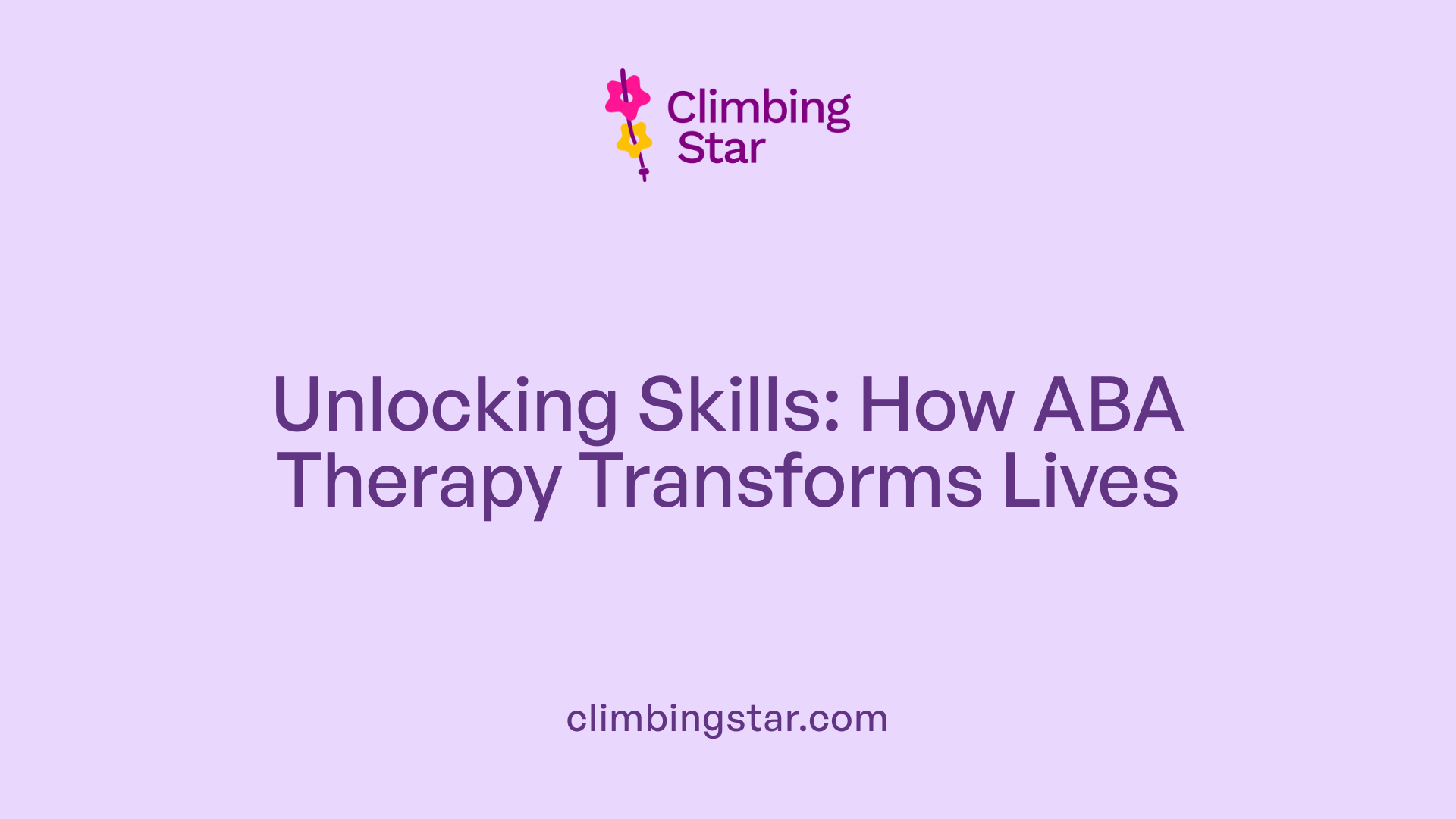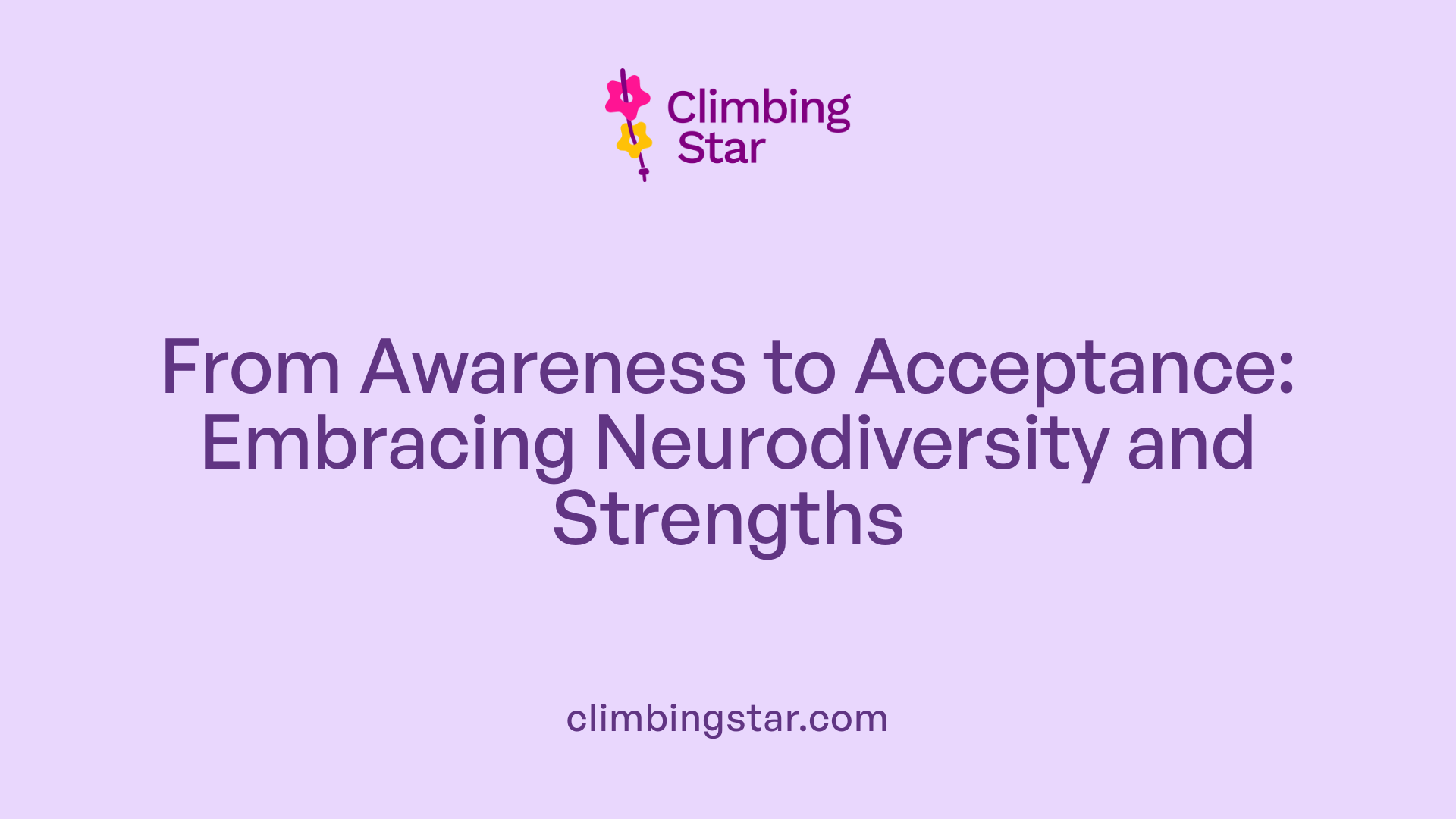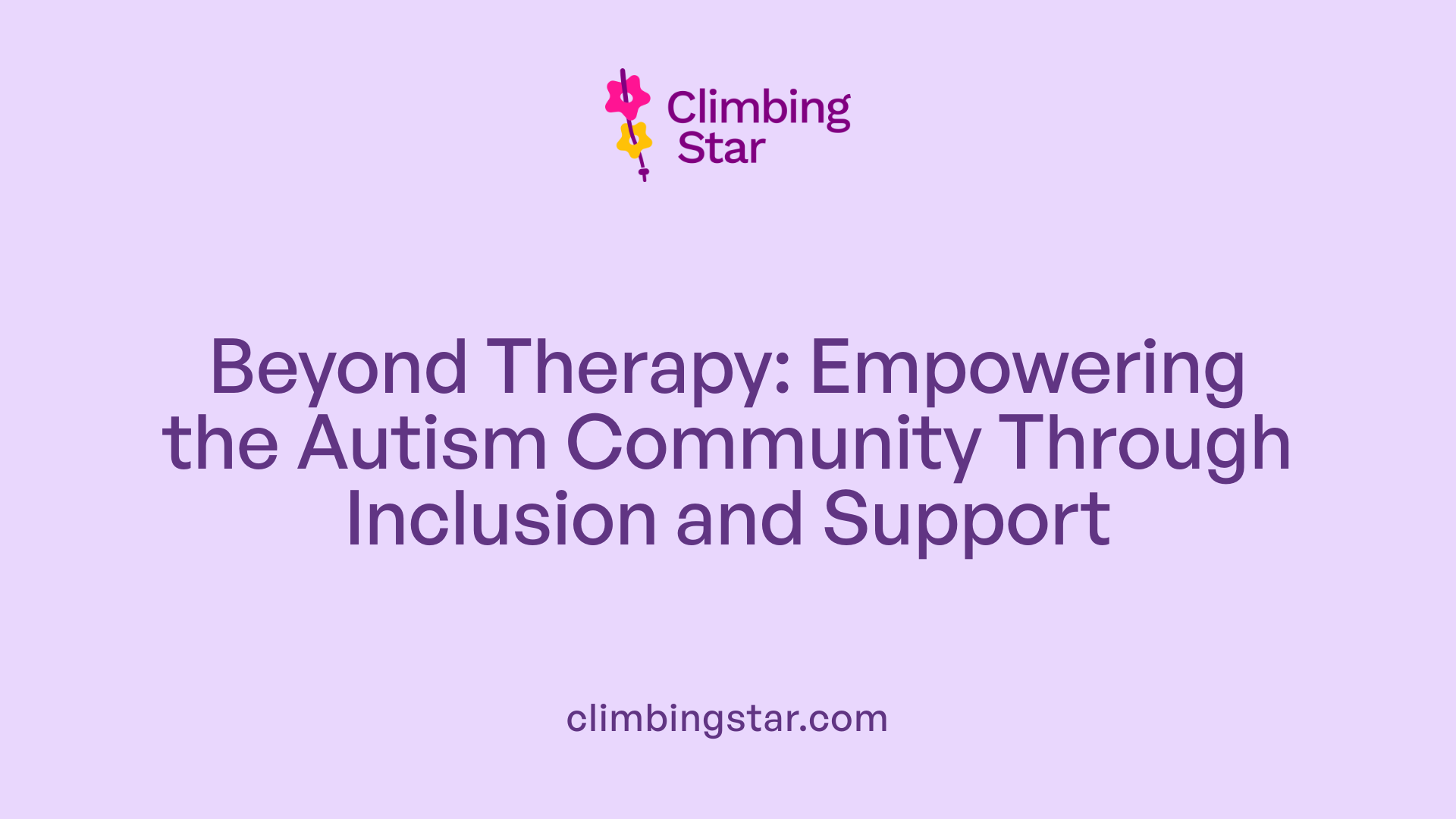Understanding Autism Spectrum Disorder
Autism Spectrum Disorder (ASD) is a complex neurodevelopmental condition characterized by differences in communication, social interaction, and behavior, often emerging in early childhood. Recognized as a spectrum, autism encompasses a wide range of presentations and severities, with individuals exhibiting varied strengths and challenges. As awareness grows across the globe, understanding the nuances of autism is crucial not only for early intervention but also for fostering a culture of acceptance and support that celebrates neurodiversity.
What Is Applied Behavior Analysis (ABA) Therapy?

What is Applied Behavior Analysis (ABA) therapy?
Applied Behavior Analysis (ABA) therapy is a scientifically supported approach designed to improve socially significant behaviors in individuals, particularly those on the autism spectrum. This therapy utilizes behavioral principles to teach new skills and reduce behaviors that may interfere with learning or daily functioning.
Core principles and techniques
ABA therapy relies on the systematic application of behavioral principles, including positive reinforcement, prompting, and behavior modification. Positive reinforcement encourages desired behaviors by rewarding them, which increases the likelihood these behaviors will continue. Therapists carefully analyze antecedents (what happens before a behavior) and consequences (what happens after) to understand and shape behavior effectively.
Individualized treatment approach
Each ABA program is tailored to the individual's unique strengths and challenges. Behavioral assessments identify specific goals, such as improving communication or social skills, which guides the development of customized interventions. Ongoing evaluation ensures that treatments remain relevant and effective over time.
Role of positive reinforcement and behavior modification
A central element of ABA is reinforcing positive behaviors to encourage their repetition, while implementing strategies to reduce harmful or unhelpful behaviors. This balance helps individuals build independence and develop skills critical for daily life.
Evidence supporting ABA effectiveness
Major health organizations, including the U.S. Surgeon General and the American Academy of Pediatrics, endorse ABA as an evidence-based treatment for autism. Research demonstrates that early and intensive ABA therapy leads to significant improvements in communication, socialization, and adaptive skills.
ABA therapy is often provided by Board Certified Behavior Analysts (BCBAs) and can be used alongside other therapies like speech and occupational therapy to support comprehensive care.
Who Provides ABA Therapy and How Is It Delivered?

Who provides ABA therapy?
ABA therapy is delivered by trained professionals specializing in behavior analysis, primarily Board Certified Behavior Analysts (BCBAs). BCBAs hold advanced degrees and certification to design and oversee individualized treatment plans. Registered Behavior Technicians (RBTs) often implement these plans under BCBA supervision. Qualified psychologists and therapists with ABA training may also provide services.
Settings where ABA therapy takes place
ABA therapy is versatile and can be provided in various environments including homes, schools, clinics, and community centers. This flexibility allows therapy to be tailored to the individual's everyday settings, promoting consistent skill development.
Integration with other therapies
ABA is commonly combined with other interventions such as speech and occupational therapy to address the broader needs of individuals with autism. This multidisciplinary approach enhances communication, social, and daily living skills.
Importance of credentialing and experience
Choosing licensed and credentialed providers ensures the use of evidence-based practices and adherence to professional standards. Experienced BCBAs are skilled in conducting behavioral assessments and creating effective, personalized interventions that improve social and communication abilities.
ABA therapy's person-centered delivery by certified professionals in diverse settings, often alongside complementary therapies, makes it a cornerstone in improving the quality of life for individuals with autism.
The Benefits of ABA Therapy for Individuals with Autism

How does ABA therapy benefit individuals with autism?
ABA therapy, grounded in the science of behavior, helps individuals with autism by encouraging positive changes and developing vital skills. It uses personalized treatment plans tailored to each person’s unique needs, focusing on areas such as communication, social interaction, and daily living.
Skill development through ABA
Through systematic assessment and goal-setting, ABA therapy enhances various skills. It encourages communication abilities and social behaviors by employing techniques like positive reinforcement, which rewards progress and motivates continued learning.
Improvements in communication and social interaction
ABA supports non-verbal individuals and those with atypical speech to better understand and use language. It also helps recognize and respond to social cues, facilitating smoother interactions and stronger relationships.
Reduction of challenging behaviors
By applying behavioral principles, ABA reduces problematic or repetitive behaviors that may interfere with daily life. This leads to improved safety, comfort, and engagement in social and educational settings.
Early intervention impact
Starting ABA therapy early in childhood is especially beneficial, leading to enhanced cognitive, language, and social outcomes. Early, consistent therapy significantly improves long-term independence and quality of life.
Role in fostering independence and daily living skills
ABA equips individuals with essential daily skills, promoting autonomy and confidence. This includes tasks like self-care, decision-making, and adapting to new environments, which contribute to a fuller and more independent life.
Together, these benefits make ABA therapy a powerful and flexible tool, commonly recommended by major health organizations, that improves the well-being of individuals on the autism spectrum across all stages of life.
The Evolution of Autism Awareness to Autism Acceptance

Shift from Awareness to Acceptance
Over the years, the focus on autism has transitioned from mere awareness to embracing autism acceptance. Autism Awareness Month, observed every April, has evolved into Autism Acceptance Month. This shift emphasizes understanding, inclusion, and genuine support for autistic individuals rather than just recognition of the condition.
Promotion of Neurodiversity
Central to this acceptance movement is the promotion of neurodiversity, which celebrates neurological differences as natural human variations. This perspective encourages society to value autistic individuals for their unique strengths and perspectives rather than viewing autism solely as a disorder.
Criticism of Traditional Autism Symbols
Traditional symbols like the puzzle piece have faced criticism for implying that autistic individuals are 'missing pieces' or need to be 'solved.' Advocates argue that such imagery can perpetuate negative stereotypes. Instead, the infinity symbol has gained prominence as a more positive representation, symbolizing the infinite variations of human neurodiversity.
The 'Red Instead' Movement
The 'Red Instead' movement highlights empowerment and authentic representation of autistic voices, encouraging the use of the color red as a symbol instead of the traditional blue associated with autism. This reflects a desire to shift narratives towards acceptance and self-advocacy within the autistic community.
Importance of Respectful and Strengths-Based Language
Language plays a crucial role in supporting autism acceptance. Using respectful, person-first or identity-first language that highlights strengths rather than deficits fosters a more inclusive environment. This approach helps dismantle stereotypes and promotes dignity and understanding for autistic individuals.
Supporting the Autism Community Beyond Therapy

Why Is Early Diagnosis and Intervention Important?
Early diagnosis and intervention play a crucial role in improving outcomes for individuals with autism spectrum disorder (ASD). Identifying autism early allows for timely implementation of therapies such as Applied Behavior Analysis (ABA), speech therapy, and occupational therapy. These evidence-based approaches help develop communication, social skills, behavioral regulation, and daily living abilities, significantly enhancing quality of life.
How Can Autistic-Owned Businesses Be Supported?
Supporting autistic-owned businesses is a meaningful way to empower individuals on the spectrum and celebrate neurodiversity. Purchasing products or services from these enterprises not only provides economic support but also promotes positive representation and inclusion. Encouraging entrepreneurial endeavors among autistic individuals fosters community strength and challenges stereotypes.
What Roles Do Community Involvement and Advocacy Play?
Active community involvement and advocacy are essential for promoting acceptance and creating supportive environments. Participating in autism-friendly events, volunteering, and advocating for inclusive policies help raise public understanding. Advocates work to challenge misconceptions, improve services, and ensure equal opportunities in education, employment, and healthcare.
What Educational and Inclusion Initiatives Are Important?
Educational initiatives focus on increasing awareness about autism, promoting inclusive classrooms, and training educators to support diverse learning needs. Schools implementing personalized learning plans and sensory-friendly environments enable autistic students to thrive. Inclusion programs extend beyond academics, fostering social integration and reducing stigma.
What Is the Role of Comprehensive Support Services?
Comprehensive support services address the varied needs of autistic individuals and their families, offering therapy options, family education, transition planning, and community resources. Organizations like North Star Health Alliance provide individualized therapy and assistance throughout life stages. These services complement therapeutic interventions and strengthen overall wellbeing.
| Support Area | Description | Impact on Autism Community |
|---|---|---|
| Early Diagnosis & Intervention | Timely identification and therapy engagement | Enhances skill development and long-term outcomes |
| Autistic-Owned Businesses | Economic empowerment and positive representation | Promotes inclusion and neurodiversity recognition |
| Community Involvement & Advocacy | Awareness campaigns, event participation, policy change | Builds supportive and accepting social environments |
| Educational & Inclusion Initiatives | Inclusive curricula and sensory-friendly settings | Improves academic and social success |
| Comprehensive Support Services | Therapy provision, family support, transition planning | Addresses diverse needs, enhancing quality of life |
Moving Towards an Inclusive Future for Autism
As Autism Awareness Month has grown to embody Autism Acceptance Month, the dialogue surrounding autism is transforming to emphasize respect, understanding, and inclusion. Evidence-based interventions like Applied Behavior Analysis therapy remain vital tools in helping individuals with autism thrive, particularly when delivered by credentialed professionals and tailored to individual needs. Equally important is the societal shift toward celebrating neurodiversity and empowering autistic voices. By fostering early intervention, supporting diverse therapies, and engaging in advocacy, communities can create environments where autistic individuals are valued for their unique strengths and contributions. This holistic approach holds promise for greater independence, improved quality of life, and true acceptance for all on the autism spectrum.
References
- What is autism? What is ABA? Building understanding in ...
- Embracing Autism Acceptance Month: Moving Beyond ...
- World Autism Awareness Month 2025
- Understanding Autism: Facts, Awareness, and Support
- Applied Behavior Analysis (ABA)
- Applied Behavior Analysis (ABA)
- The Controversy Around ABA
- A Treatment Summary of Applied Behavior Analysis
- Applied Behavior Analysis (ABA)






